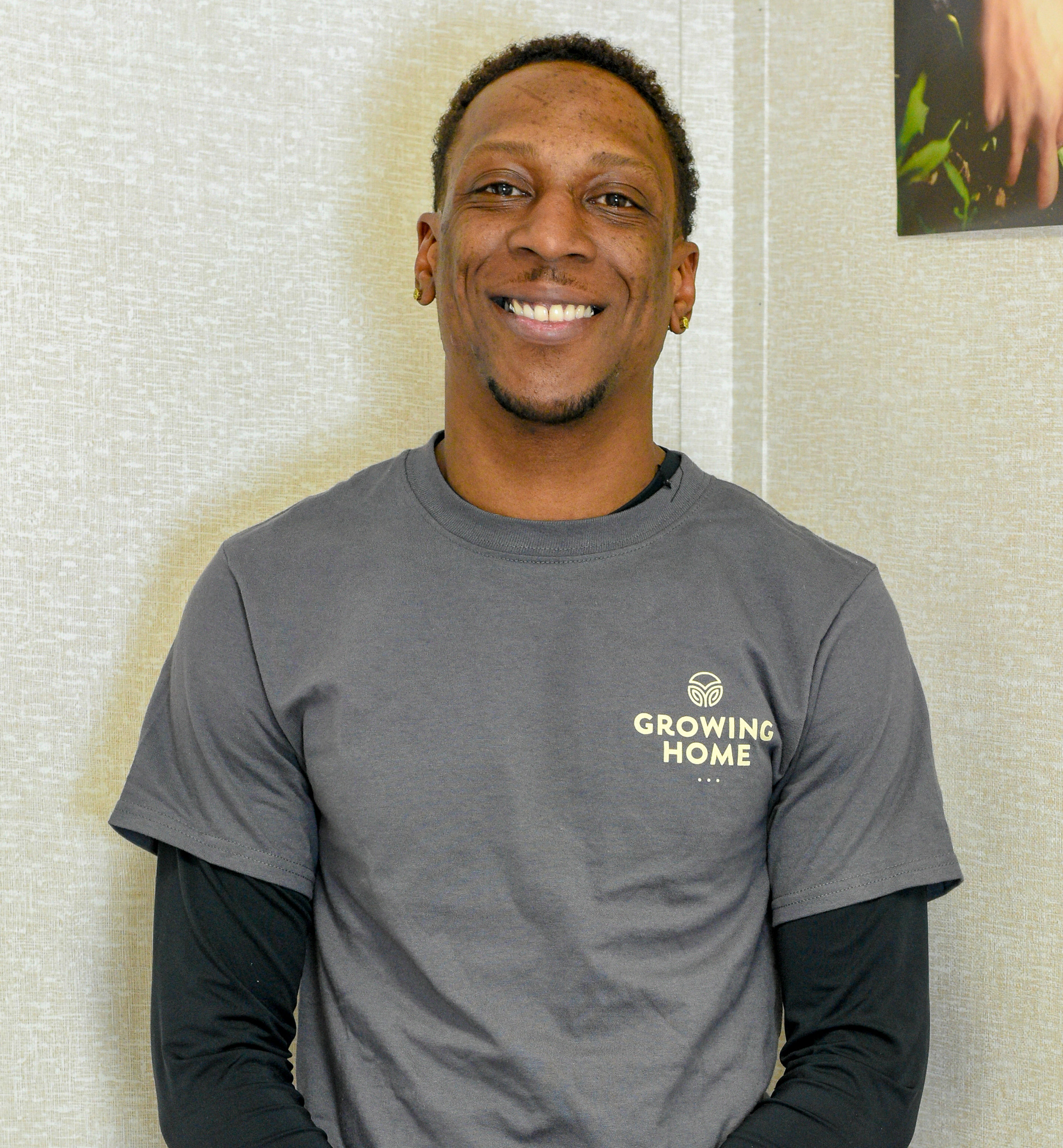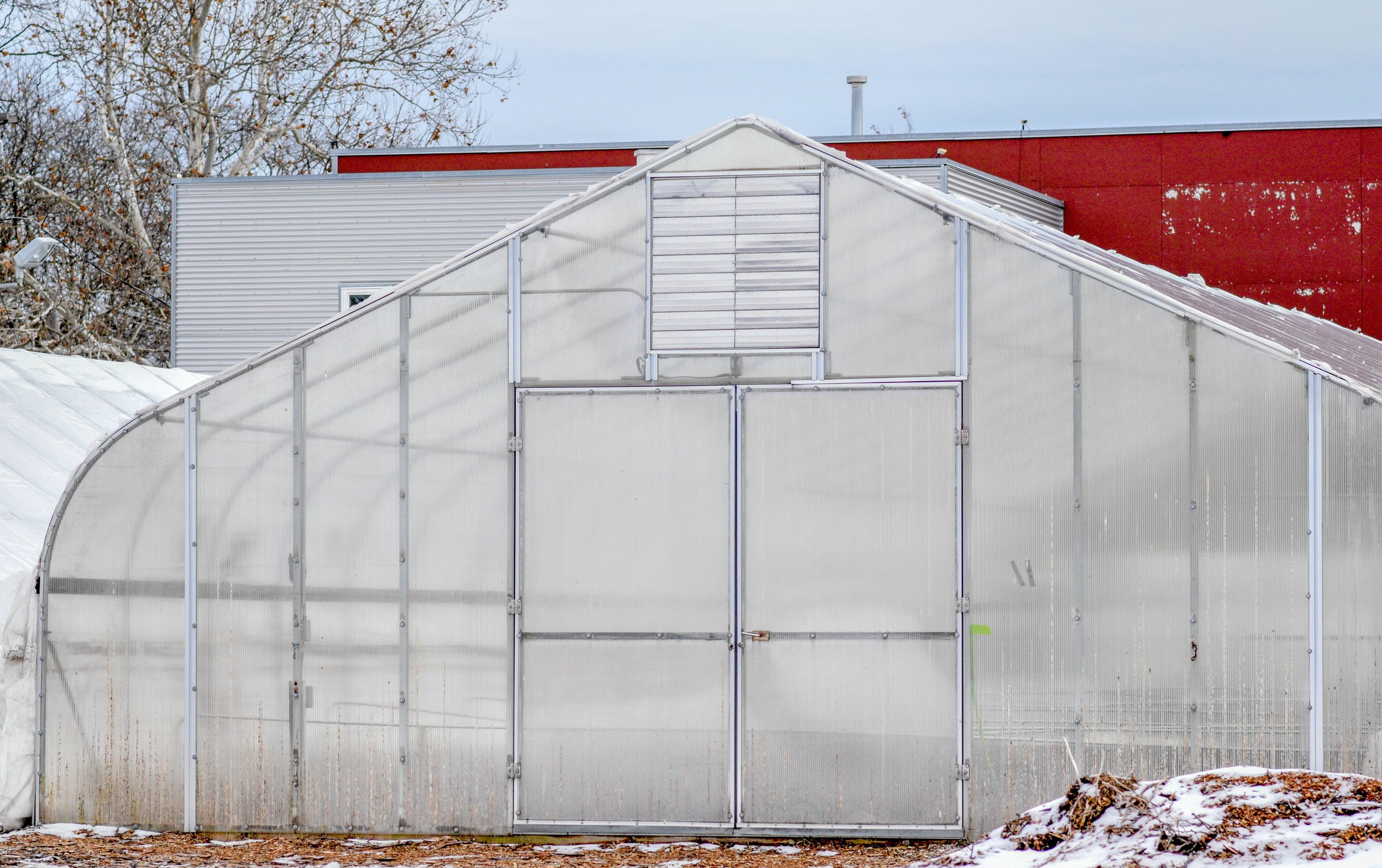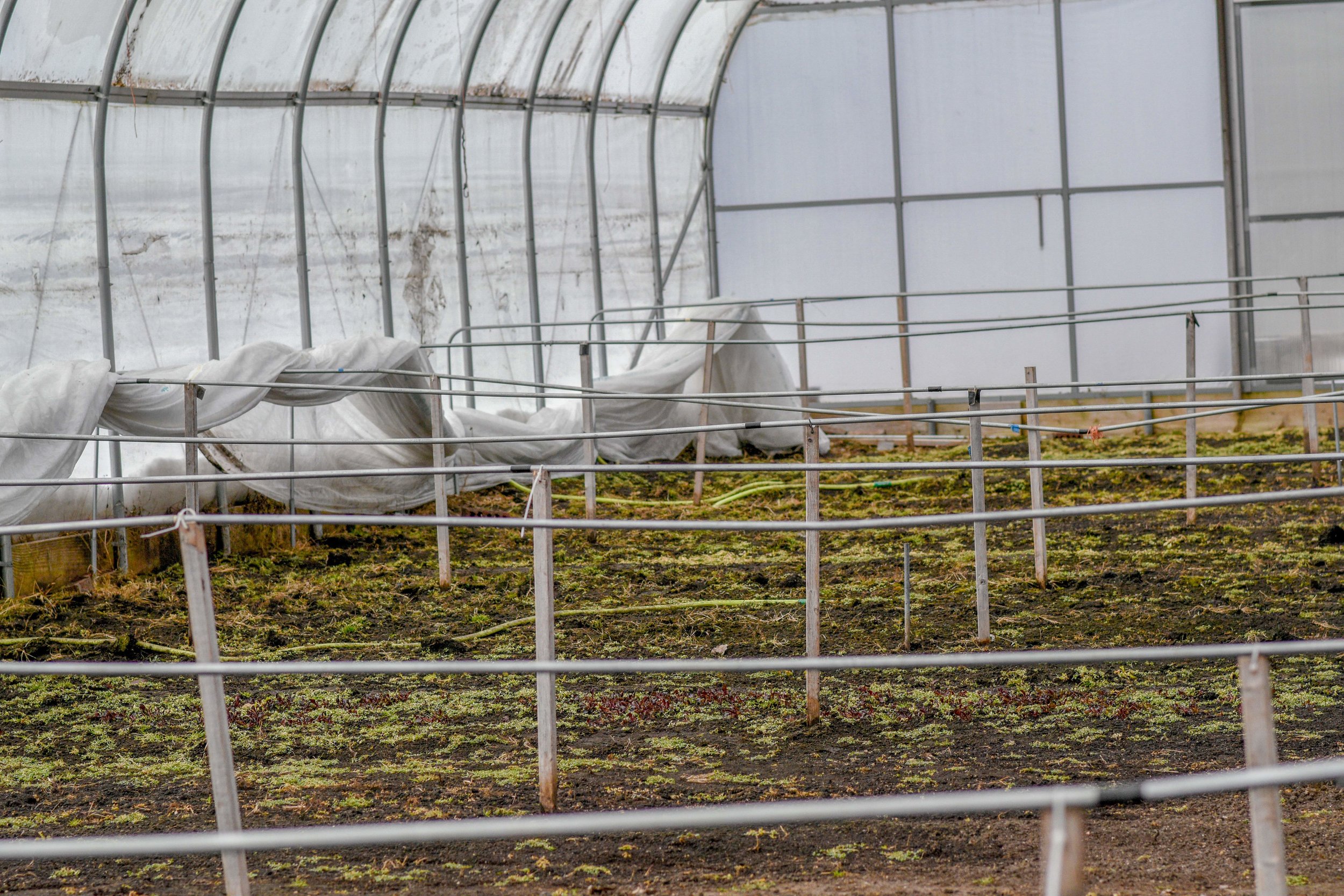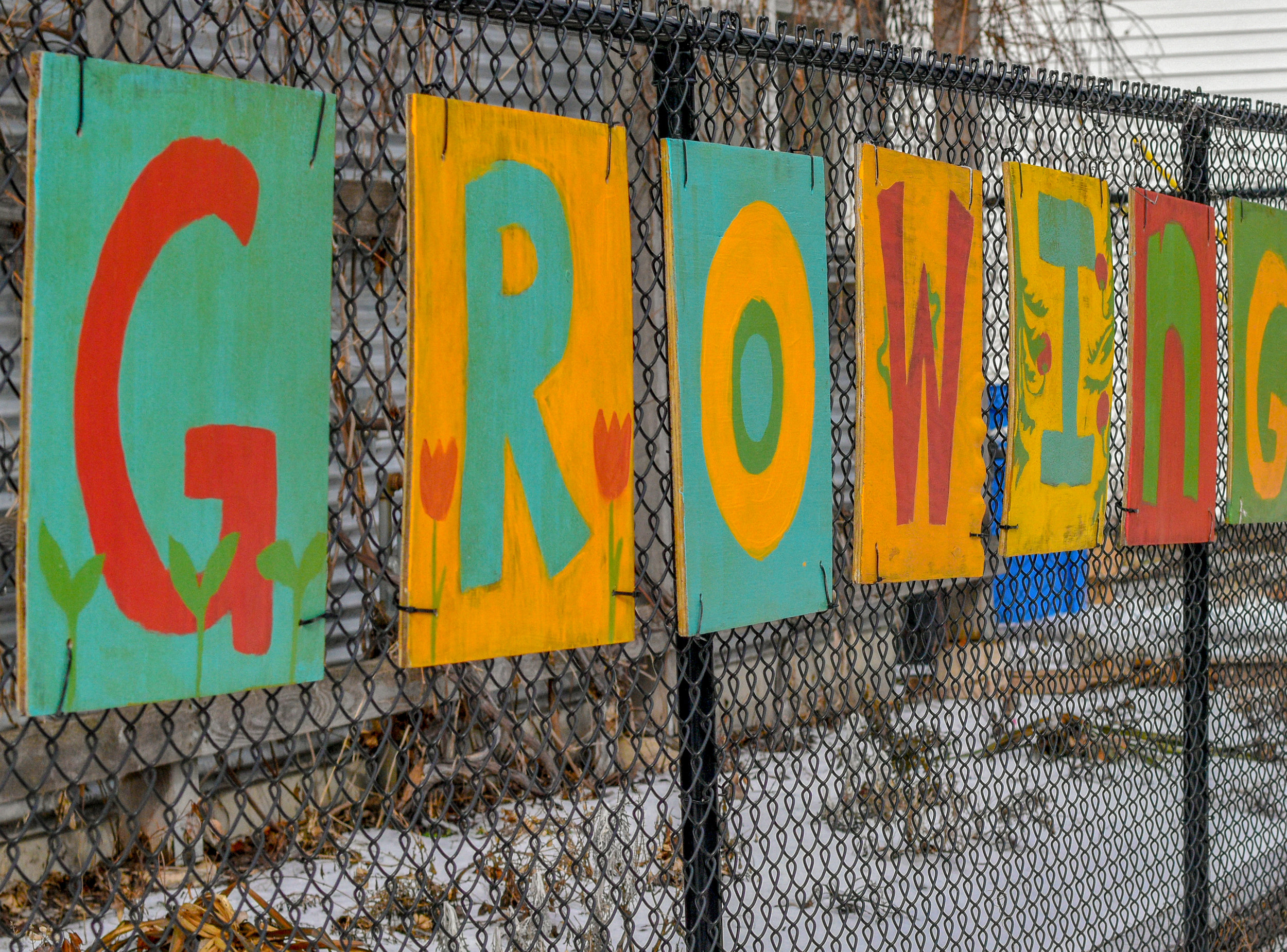Photography: Angela Burke
Growing up, DeAndre Brooks had no idea he would one day follow in his grandmother’s footsteps to become an urban farmer.
“Granny,” as he calls her, moved to Chicago from Mississippi during the Great Migration but remained close to her Southern foodways. “I used to go out in the backyard and she was urban farming, in Chicago, in Woodlawn; but I’m not knowing what she’s doing,” says Brooks. “I’d go out, go pick out some greens, go get some tomatoes off of the vine.”
And when Granny tasked Brooks with clearing out weeds in the garden, he suggested a modern solution, as New School would, which was quickly dismissed. “She used to have me picking out weeds and I used to be like, ‘there’s Miracle Grow,’ and stuff like that, and she’s like ‘I’m not spraying that type of stuff on my food,’” says Brooks.
As the farm manager and a former participant of Growing Home, the first USDA-certified organic urban farm in Chicago, Brooks leads a team of 50 people in a 14-week hands-on, paid, farm-based job training program for individuals with multiple employment barriers who are looking for a fresh start. Program graduates are matched with F&B jobs in Chicago. “We use farming as a vehicle just to teach and train. We have classrooms upstairs to help with resumes and certifications — different things to get them back into the workforce.”
“If we don’t keep the knowledge of urban agriculture going, we might get lost in the system. Just keep informed, take classes, go do research, keep farming.”
The Englewood farm sits on 1.5 acres of land and it’s a gem hidden in plain sight. Surrounded by classic Chicago wood frame and brick bungalow homes, Growing Home is a hub for the community and Brooks is its steward. Access to fresh, healthy, affordable food is still a significant problem for communities like Englewood. Brooks and team are doing their part to engage the community. The farm holds farmers markets where they sell produce at discounted rates while also educating community members on what’s in season and preparation methods. “You gotta keep people informed about the food system,” says Brooks. He often reminds people that it’s natural for organic produce to have blemishes and that imperfections are a good thing. “If you get something from the grocery store, everything is going to be the same — uniform, static.”
Brooks is a natural teacher as he speaks to people who have no farming experience with ease. When members of the community visit the farm, Brooks offers advice on healthy eating tips and he applies the same message at home. “My son tries to stay away from Flamin’ Hots and he tries our kale chips instead.” He may even encourage you to start an urban garden. “Get some good compost and get some pots. Put some herbs in one pot. Put some kale over there, a spinach plant over here, hearty green leaf on your balcony,” he instructs. “Put herb pots throughout the house — thyme and mint keep coming back; marjoram, lemon balm.”
A second generation urban farmer, Brooks is carrying on the legacy of our ancestors at a time when farming has become trendy, yet Black and brown voices are often excluded from conversations around agriculture. “It’s kind of tough because we don’t get our recognition and a lot of growing food started through African Americans — wherever we were, we grew our food,” says Brooks. He hopes more young people will follow his lead and consider a career in urban farming. “If we don’t keep the knowledge of urban agriculture going, we might get lost in the system. Just keep informed, take classes, go do research, keep farming.”
-Angela Burke, Winter 2019
DeAndre Brooks // Farm Manager // Growing Home // @growinghome






